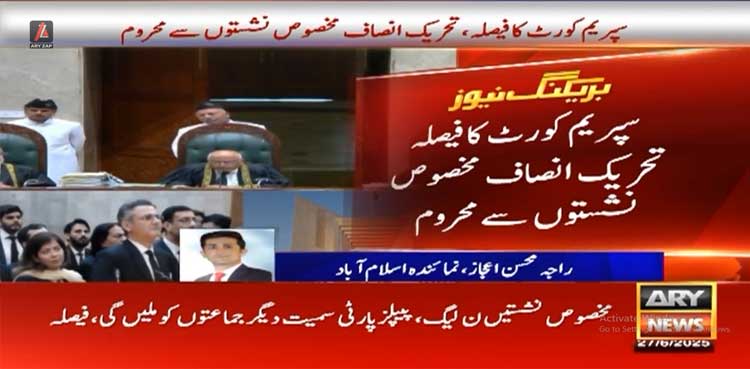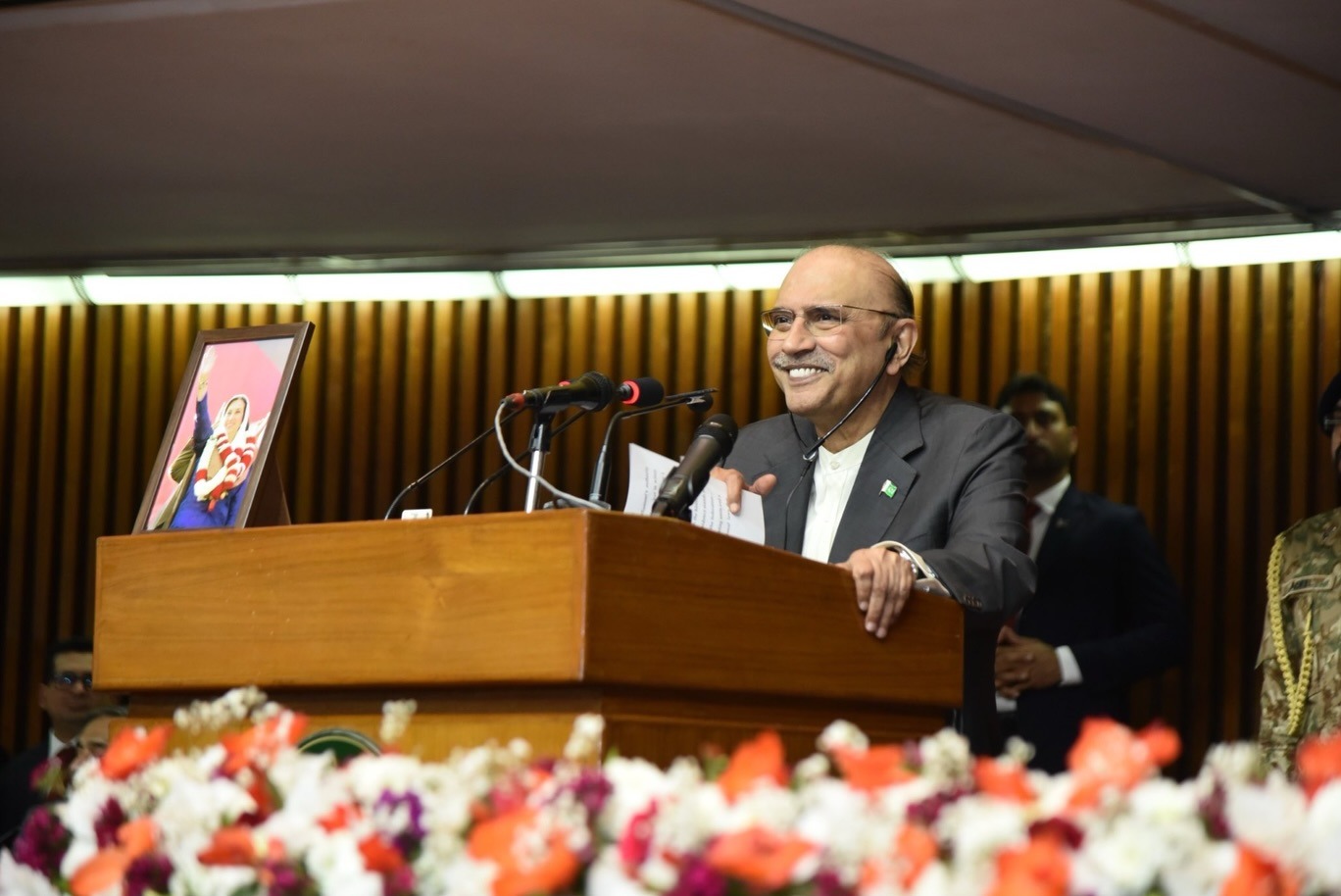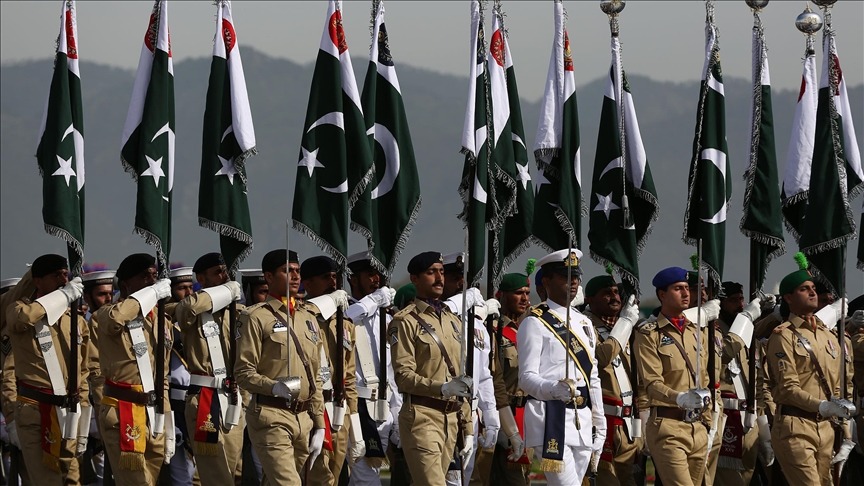ISLAMABAD – In a momentous decision poised to reshape the contours of Pakistan’s post-election political landscape regaring the reserved seats, the Supreme Court of Pakistan has set aside its own earlier majority judgment delivered on July 12, 2024. By allowing multiple civil review petitions, the Court has restored the verdict of the Peshawar High Court, denying the Sunni Ittehad Council (SIC) access to reserved seats in national and provincial legislatures.
This ruling is the outcome of an intense judicial review process involving extensive hearings, complex legal arguments, and heightened political scrutiny. The final short order, announced on June 27, 2025, by a reconstituted larger constitutional bench, has brought clarity to the highly contested matter of parliamentary representation post the 2024 general elections.
Background: The SIC’s Rise and Controversial Claim
Following the February 2024 general elections, the Sunni Ittehad Council emerged as a key player by absorbing a majority of independently elected candidates affiliated with the Pakistan Tehreek-e-Insaf (PTI). The move aimed to circumvent PTI’s disqualification from electoral participation due to its deregistration and legal battles.
The SIC subsequently staked its claim on reserved seats for women and minorities across national and provincial legislatures. However, the Election Commission of Pakistan (ECP) denied this request, citing procedural and constitutional concerns. The Peshawar High Court upheld the ECP’s stance, stating that the SIC failed to contest elections in its own name and therefore was not eligible for reserved seat allocation.
In a surprising turn, a majority judgment of the Supreme Court on July 12, 2024, overturned the High Court ruling and ordered allocation of 77 reserved seats to the SIC — a move widely seen as altering the power balance in the National Assembly.
The Review Petitions and the Constitutional Bench

Immediately after the controversial verdict, major political parties, including Pakistan Muslim League (N), Pakistan People’s Party Parliamentarians (PPPP), and others, filed review petitions. They challenged the judgment on legal, procedural, and constitutional grounds.
The review was undertaken by a specially constituted 13-member constitutional bench of the Supreme Court. However, two judges (Justice Ayesha A. Malik and Justice Aqeel Ahmed Abbasi) dismissed the petitions at the outset. As the proceedings neared their conclusion, Justice Salahuddin Panhwar recused himself from the bench, citing undisclosed reasons, leading to a reconstitution of the bench.
The final judgment was delivered by the remaining ten judges.
The Judgment: Majority Sets Aside July 2024 Verdict
By a majority of 7-3, the Supreme Court allowed all review petitions and nullified the July 2024 majority decision. The civil appeals filed by the SIC were dismissed, and the judgment of the Peshawar High Court was restored.
The majority opinion was authored and endorsed by Justices Amin-ud-Din Khan, Musarrat Hilali, Naeem Akhter Afghan, Shahid Bilal Hassan, Muhammad Hashim Khan Kakar, Aamer Farooq, and Ali Baqar Najafi.
In doing so, the Court reaffirmed the principle that reserved seats are allocated only to parties that contest general elections and submit pre-election party lists — a criterion the SIC failed to fulfill. The ruling essentially strips the SIC of its parliamentary leverage gained through the earlier judgment.
Diverging Judicial Opinions on Reserved Seats
Notably, three judges penned separate concurring or dissenting notes:
-
Justice Jamal Khan Mandokhail partially allowed the review petitions, maintaining the allocation of 39 seats but revoking 41 others.
-
Justice Muhammad Ali Mazhar and Justice Syed Hasan Azhar Rizvi acknowledged the flaws in the earlier judgment but emphasized the unresolved factual controversies. They directed the ECP to conduct a de novo review of the nomination papers and affiliations of all 80 returned candidates, allowing the Commission 15 days to reach a fresh decision in accordance with the law.
Implications: A Shift in the Parliamentary Math
The decision holds significant political implications. With SIC’s claim on 77 reserved seats revoked, the composition of the National Assembly and provincial assemblies — particularly in Punjab and Khyber Pakhtunkhwa — is set to shift. It is likely to bolster the standing of PML-N, PPPP, and other coalition partners.
Moreover, the ruling reaffirms the sanctity of pre-election legal frameworks. Parties cannot retroactively gain benefits without participating in the electoral process through officially recognized platforms and mechanisms.
A Defining Moment for Judicial Oversight
This reserved seats case will likely be studied for its procedural depth and constitutional significance. It showcases the Supreme Court’s capacity to revisit its own decisions in the interest of justice and clarity, particularly where earlier rulings may have bypassed key legal thresholds or created ambiguity in the interpretation of election laws.
The use of review jurisdiction — a rare and exceptional judicial tool — was crucial in correcting what many legal experts had termed a “judicial misstep” in the July 2024 verdict.
In the broader democratic context, the verdict restores public faith in Pakistan’s judicial independence and the procedural safeguards embedded within its constitutional framework.
Way forward
The Supreme Court’s decision to reverse its own ruling in favor of the SIC marks a pivotal moment in Pakistan’s democratic evolution. It sends a powerful message: political maneuvering cannot supplant legal procedure. With this ruling, the judiciary has reasserted its role as a bulwark against constitutional deviations, reaffirming the principles of transparency, fairness, and electoral legitimacy.
As the country prepares for the next parliamentary session, this judgment of reserved seats will serve as a milestone in electoral jurisprudence — one that may shape the legal strategies of political actors for years to come.
Mr. Sabahuddin Qazi serves as Editor-in-chief of the Press Network of Pakistan.



